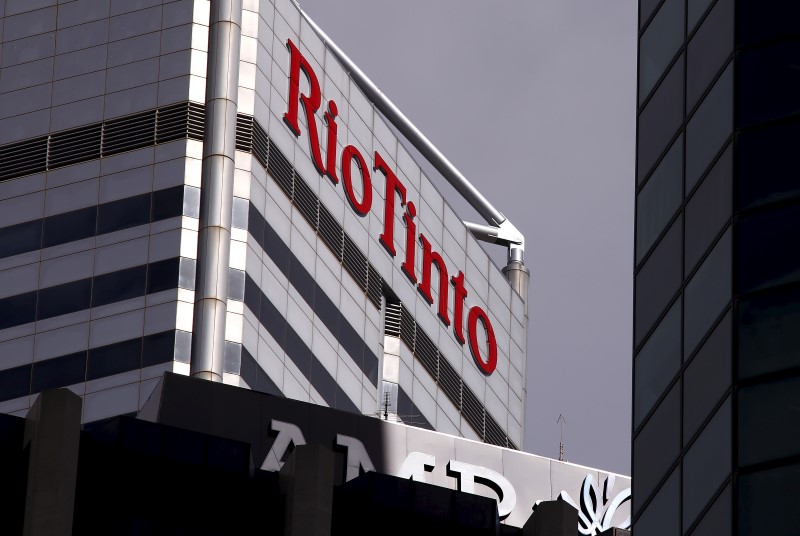By James Regan
SYDNEY, May 4 (Reuters) - Global miner Rio Tinto RIO.AX RIO.L said on Thursday it is watching for signs of a revival in domestic iron ore mining in China later this year to reduce reliance on imports amid firmer ore prices.
Rio Tinto is a top exporter to China of the steel making raw material, which accounts for the lion's share of profits for the mining house.
"The key source of uncertainty is around - when you move to the end of the summer - are they (China) going to restart some of their mines," said Rio Tinto Chief Executive Jean-Sebastien Jacques, following his company's annual general meeting.
China's mines - largely less efficient than those in Australia and Brazil due to lower iron ore content - began cutting annual capacity from around 300 tonnes three years ago in line with falling iron ore prices, bottoming out at 250 million tonnes at the end of 2016, Jacques said.
But higher prices have made a revival in domestic mining more likely, allowing Chinese steelmakers to reduce raw material import costs and generating profits again for the mines.
The spot benchmark .IO62-CNO=MB , which touched a 30-month peak of $94.86 in February, has eased around 13 percent this year, but iron ore still sells well above the sub-$40 a tonne plumbed in late 2015.
A rise in domestic ore could give mills some leverage to push for better deals on imports from Rio Tinto, Vale VALE5.SA and BHP Billiton BHP.AX BLT.L , which dominate the seaborne iron ore market.
"We've got around 200 people in China, in Shanghai and Beijing, and that is a big chunk of their work - to find out exactly what's happening in the marketplace," Jacques added.
The comments come as Australian miners maintain near-record shipments of iron ore to China and inventories at Chinese ports swell.
April shipping figures from Australia's Port Hedland, used by BHP and Fortescue Metals Group FMG.AX , showed an 11 percent rise in exports to China to nearly 35 million tonnes. stockpiles of imported iron ore at China's major ports topped 130 million tonnes as of Friday, up 950,000 tonnes from the previous week, and are not far off record levels. SH-TOT-IRONINV
